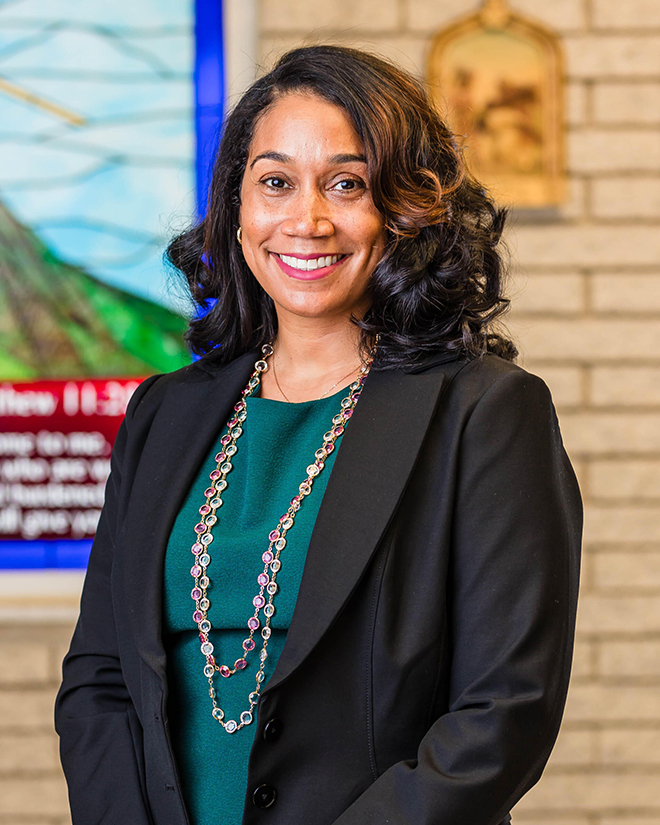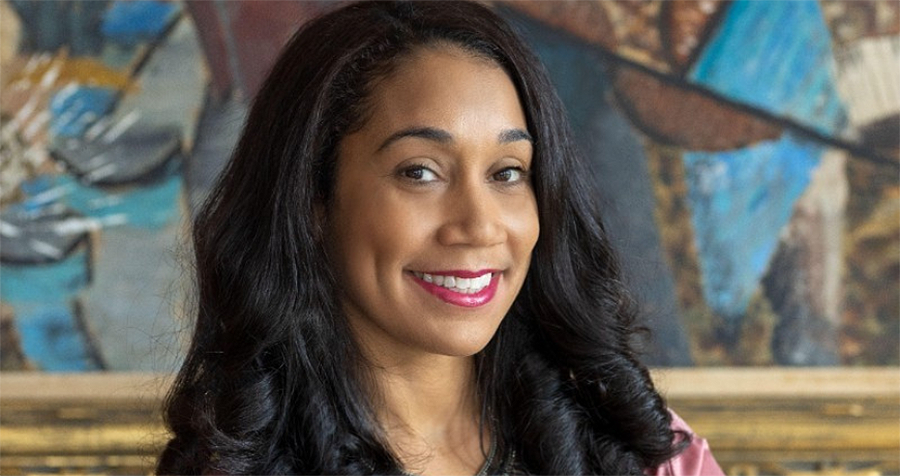Spotlight: Meagan Dunn (BA ’03)

Adapted from Rick Haglund’s article for Michigan News.
Meagan Dunn is the executive director of Covenant House Michigan, having served in that position since July 2022. Part of an international organization, Covenant House serves homeless young adults aged 18 to 24, some of whom have been victims of human trafficking.
Covenant House Michigan, with campuses in Detroit and Grand Rapids, provides a variety of services, including emergency shelters, transitional housing, job training, and an independent living program. The nonprofit agency has an annual budget of $6 million, most of which comes from private donations.
Dunn has had a long career in public service, including having worked for three former Detroit mayors. The Detroit native and current resident of the city has a bachelor’s degree in English from the University of Michigan and a master of business administration degree from Michigan State University.
What led you to your role as executive director of Covenant House Michigan?
I’ve always considered it a blessing that ever since I graduated from U-M I’ve worked in municipal or nonprofit mission-based work. And so when the opportunity came to lead an organization I really considered it quite an honor to be able to take everything that I’ve done within my career to bring me to this point.
What are some of the causes of young adult homelessness?
About a third of the young people we help at Covenant House age out of the foster system. They turn 18 and are released from the state. And in many cases, there are no family members or relationships that have developed where they can go. We see young people for a variety of reasons. Some of their experience with homelessness is generational, so they’ve seen a parent or guardian also having some lived experience around homelessness. And then, of course, we see young people who are just trying to find their way in this world.
We’ve even had college students come to us. They may have lost their housing voucher or something may have happened with their financial aid and they’ve come to Covenant House because they didn’t have anywhere else to go. We’ve helped transition them back to school so they can continue with their studies.
Many economic indicators have improved over the last several years, but human services agencies like yours often say the needs of people left behind are greater than ever. Why do you think that is?
What we’re now seeing is the rise in mental health care and the challenges in that. I think we’re still dealing with the outcomes of the COVID-19 crisis. I think that’s the most challenging thing we’re seeing in the young people we’re serving.

I understand you’re undertaking a new initiative. What does that involve?
We’re working with employers to help them understand the challenges of someone who’s experiencing housing insecurity. It could be transportation. It could be even understanding how a young person interacts with someone in an authoritative place. We not only train the young people we work with, but we do our best to work with employers to help them understand the circumstances in which some of these young people are coming from.
How has your U-M education helped you in your career?
I’m from Detroit and went to high school through Detroit Public Schools. When I got to U-M, my eyes were opened to the rest of the world. That has certainly helped me professionally. I’m so grateful that I spent time at the university and was able to learn so many things through academic courses, but also just learned a lot about life.
I absolutely love that there is a unit (Business+Impact) within the business school that focuses on social impact careers. Nonprofit organizations are going through a bit of an identity shift in that we have a heart for our mission, but we need to apply business strategies to our operations, finances, people/capacity, etc.

